Presenters
 Board Chair
Board Chair
Andrea Anderson, MD, MEd, FAAFP
ABFM
Dr. Anderson is a bilingual Family Physician and the Associate Chief of the Division of Family Medicine at the George Washington School of Medicine and Health Sciences (GW), where she has been instrumental in the re-establishment of Family Medicine at GW. She is the course director for the Transition to Residency Fourth Year required UME to GME Capstone Course and Co-Directs the Health Policy Scholarly Concentration at GW. She is the Chair of the DC Board of Medicine and has been active in DC health policy and medical regulation as well as teaching ethics, professionalism, and physician advocacy to medical students and residents. She serves on the national Ethics and Professionalism Committee of the Federation of State Medical Boards and is the STFM representative to the Academic Family Medicine Advocacy Committee. She serves on the Management Committee of the USMLE and other USMLE item writing and item review national committees of the National Board of Medical Examiners.s She is a member of Family Medicine Education Consortium Board of Directors.
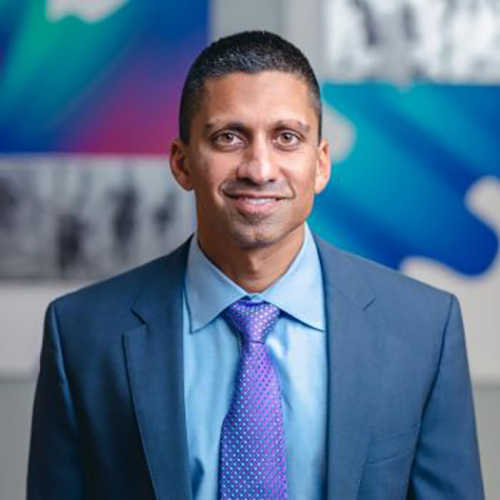 Heersink Endowed Professor of Sports and Exercise Medicine, Associate Dean for Primary Care & Rural Health. Chair, Department of Family and Community Medicine and Director, Primary Care Service Line
Heersink Endowed Professor of Sports and Exercise Medicine, Associate Dean for Primary Care & Rural Health. Chair, Department of Family and Community Medicine and Director, Primary Care Service Line
Irfan M. Asif, MD
University of Alabama Birmingham (UAB)
Dr. Irfan Asif is associate dean for Primary Care and Rural Health and Chair of the Department of Family and Community Medicine within the University of Alabama Birmingham (UAB) Marnix E. Heersink School of Medicine. He currently serves as Chair of the American Medical Society for Sports Medicine (AMSSM) Collaborative Research Network and Chair of the Research Development Committee for the Association of Departments of Family Medicine. He is Associate Editor for the journal Sports Health and serves as team physician for UAB Athletics, Birmingham Legion FC, and USA Wheelchair Rugby. His research explores several domains within sports cardiology with an emphasis on combating physical inactivity for the prevention of cardiometabolic disease. Additionally, he is a pioneer in developing educational training programs, with a focus on those who are under-represented in the medical and science fields. Dr. Asif’s cumulative work has garnered significant funding, totaling $36 million as a Principal Investigator and $28 million as a Co-Investigator. He was recently named the Heersink Endowed Professor in Sports and Exercise Medicine at UAB. Dr. Asif is married to his wife Sony, who is a Veterinary Ophthalmologist, has two kids Ray and Ruby, as well as a one-eyed dog named Muskie.
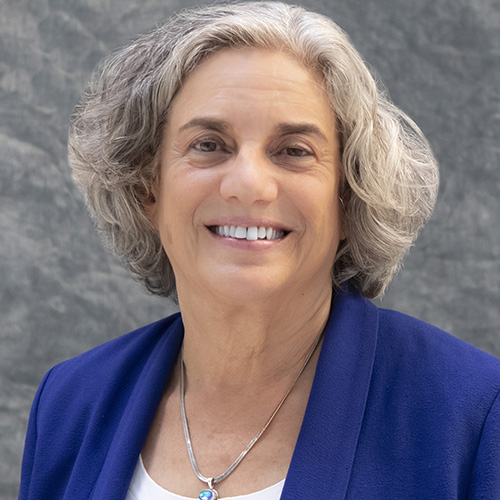 Agency for Healthcare Research and Quality’s (AHRQ) in the US Department of Health and Human Services.
Agency for Healthcare Research and Quality’s (AHRQ) in the US Department of Health and Human Services.
Arlene S. Bierman, MD, MS
Chief Strategy Officer
Arlene S. Bierman, MD, MS, is Chief Strategy Officer of the Agency for Healthcare Research and Quality’s (AHRQ) in the US Department of Health and Human Services. Previously she was director of AHRQ’s Center for Evidence and Practice Improvement CEPI) consisting of five divisions the Evidence-Based Practice Center Program; the U.S. Preventive Services Task Force Program; Digital Healthcare Research; Practice Improvement; Healthcare Delivery and Systems Research; and the National Center for Excellence in Primary Care Research. Dr. Bierman is a general internist, geriatrician, and health services researcher whose work has focused on improving access, quality, and outcomes of health care for older adults with chronic illness in disadvantaged populations and has published widely in these areas. Dr. Bierman has also developed strategies for using performance measurement as a tool for knowledge translation, as well as conducted research to increase policymakers’ uptake of evidence. She is developing an interoperable shared electronic care plan for use to improve care delivery for people living with or at risk for multiple chronic conditions. As tenured professor she held appointments Health Policy, Evaluation, and Management; Public Health; and Medicine; and Nursing at the University of Toronto, where she was the inaugural holder of the Ontario Women's Health Council Chair in Women's Health and a senior scientist in the Li Ka Shing Knowledge Institute at St. Michael's Hospital. She was principal investigator for the Project for an Ontario Women’s Health Evidence-Based Report Card (POWER) study, which provided actionable data to help policymakers and health care providers improve health and reduce health inequities in Ontario. Dr. Bierman has served on many advisory committees including the Geriatric Measurement Advisory Panel of the National Committee for Quality Assurance, the board of Health Quality Ontario, and the Institutional Advisory Board of the CIHR Institute for Health Services and Policy Research. She received her MD degree from the University of North Carolina School of Medicine in Chapel Hill where she was a Morehead Fellow. She completed fellowships in Outcomes Research at Dartmouth Medical School, and Community and Preventive Medicine at the Mount Sinai School of Medicine and served as an Atlantic Philanthropies Health and Aging Policy Fellow/American Political Science Foundation Congressional Fellow.
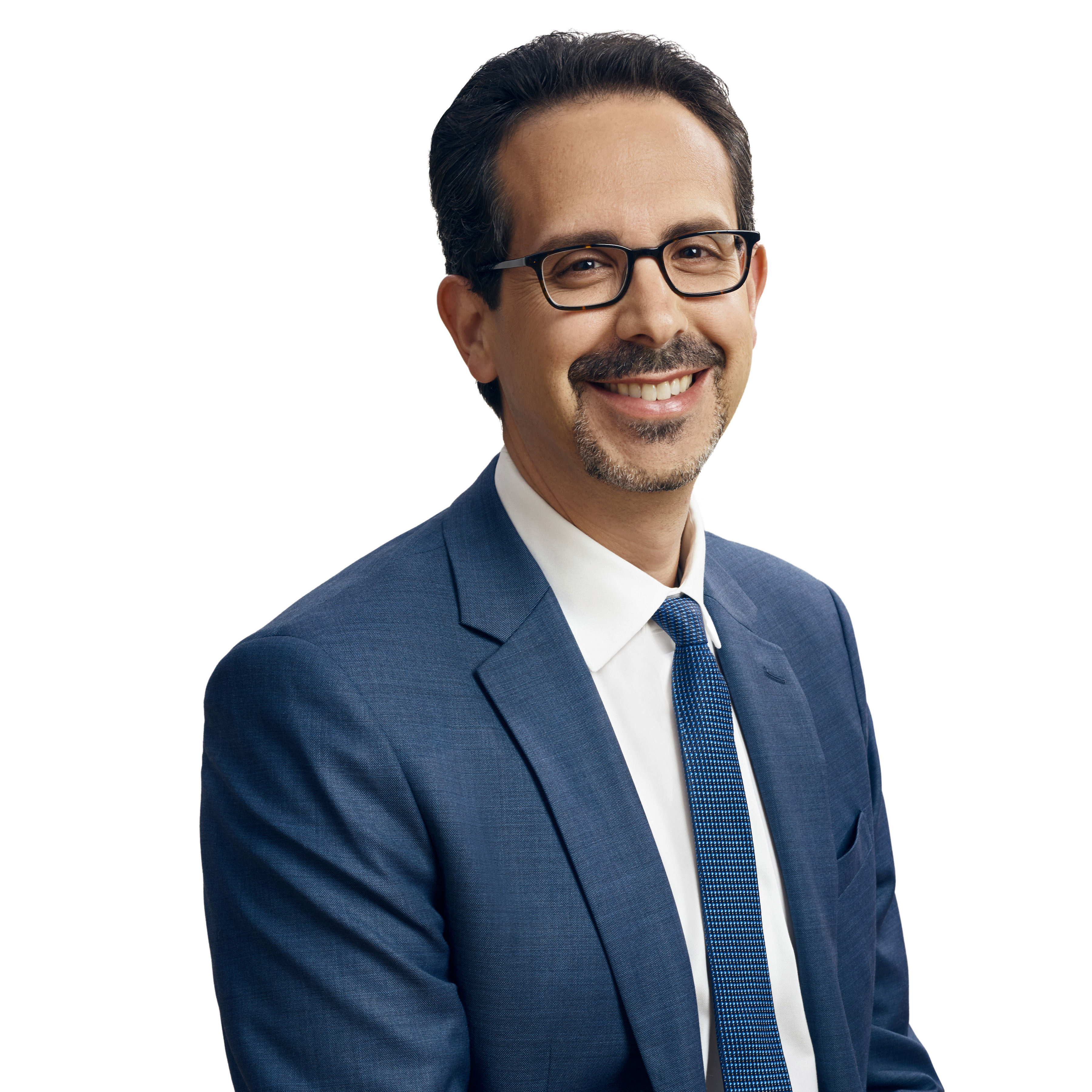 Ariadne Labs
Ariadne Labs
Asaf Bitton, MD, MPH
Executive Director
Dr Bitton is the executive director of Ariadne Labs, a health systems innovation center at Brigham and Women’s Hospital and the Harvard T.H. Chan School of Public Health. He is an Associate Professor of Medicine and Health Care Policy at both Harvard Medical School and the Harvard T.H. Chan School of Public Health. He leads Ariadne Labs’ efforts to design, test, and spread scalable solutions that make domestic and global health systems more safe, equitable, and integrated. He has served as a senior advisor for primary care policy at the Center for Medicare and Medicaid Innovation since 2012, helping to design and implement five major primary care initiatives (CPC, CPC+, PCF, MCP, PC FLEX), representing the largest tests of combined primary care payment and clinical practice transformation work in the United States. He was a core founder and vice chair of the steering committee for the Primary Health Care Performance Initiative, an 8-year partnership that included more than 25 countries and the World Bank, the World Health Organization, UNICEF, The Global Fund, the Bill & Melinda Gates Foundation, and others, dedicated to improving the global provision of primary health care. Dr. Bitton practices primary care at Brigham and Women’s South Huntington clinic, a team-based community primary care practice in Boston that he helped found in 2011. He currently serves on the boards of the National Committee for Quality Assurance and for Health Leads. He is a member of the Center for Strategic and International Studies Bipartisan Commission on Strengthening America’s Health Security, the National Advisory Committee for Advancing a Healthier Wisconsin, and is an elected member of the International Academy of Quality and Safety. He formerly served on the National Advisory Council for Healthcare Research at AHRQ. He was a member of the National Academies committee that produced Implementing High-Quality Primary Care: Rebuilding the Foundation of Health Care in 2021, and currently serves on the National Academies Standing Committee for Primary Care, co-chairing the payment workgroup. He is the recipient of the 2023 Barbara Starfield Primary Care Leadership Award.
 Virginia Ceter for Health Innovation
Virginia Ceter for Health Innovation
Beth Bortz, MPP
President and CEO
Beth was named the President and CEO of the Virginia Center for Health Innovation (VCHI) in March 2012. Prior to joining VCHI, she served for nine years as the Executive Director of the Medical Society of Virginia (MSV) Foundation, where she developed and led programs in health care quality improvement, medication assistance, public health awareness, and physician leadership. Ms. Bortz also served as Senior Program Officer and Deputy Director of the Virginia Health Care Foundation for seven years and as a Senior Associate Legislative Analyst for the Virginia General Assembly’s Joint Legislative Audit and Review Commission for three years. Ms. Bortz is a 2007 graduate of LEAD Virginia and recently completed service on its Board of Directors. She serves as a member of the National Academies of Science, Engineering, and Medicine’s Standing Committee on Primary Care, as a public member on the American Board of Medical Specialties, as a founding member of the National Task Force on Low Value Healthcare, and as a member of Virginia’s All Payer Claims Database advisory board. Previous commitments include serving as the public member on the American Board of Family Medicine, as the Secretary of the Board of Directors of Virginia Health Information, and as a founding board member and chair of Rx Partnership. She has received several awards and recognition for her work, including: the 2014 Virginia Leader Award from LEAD Virginia, Influential Women of Virginia Award from Virginia Lawyer’s Media; Medallion Award for Community Partnership from Mutual of America; and Stettinius Award for Nonprofit Leadership from the Community Foundation representing Greater Richmond. Ms. Bortz earned her undergraduate degree in Economics and Government and her Masters in Public Policy from the College of William and Mary.
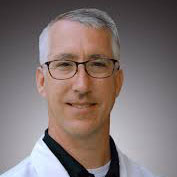 Core Faculty, Family Medicine Residency
Core Faculty, Family Medicine Residency
Samuel “Le” Church, MD, MPH, CPC-I, CRC, FAAFP
Northeast Georgia Health System
Dr Church is a private practice family physician in Hiawassee, GA, a rural area in North Georgia, with both office and hospital practice. He leads a team of around 20 staff, including two physician assistants.
He is a frequent speaker for medical practices, residency programs, hospital systems, national conferences, and ACOs related to optimized coding and workflow and correct coding. His passion has emerged for love of teaching, not only for practicing physicians and coders, but especially medical students and residents, serving as a core faculty for the Northeast Georgia Medical Center Family Medicine Residency and as Adjunct faculty for AU/UGA Medical Partnership SOM. He also serves as a Local Medical Director for Aledade ACO in Georgia.
He is a past chair of the AAFP Commission on Finance and Insurance and currently serves as President of the Georgia Academy of Family Physicians. In addition, he is a past AAFP advisor to the AMA CPT Editorial and now serves as a member of the CPT Editorial Panel.
His professional mission is to improve the health of his community and the system that delivers it in ANY way he can. Some say “he doesn’t sleep much so that others can.” He and his wife, Nancy, live on a small farm with their four children and often collaborate on community projects.
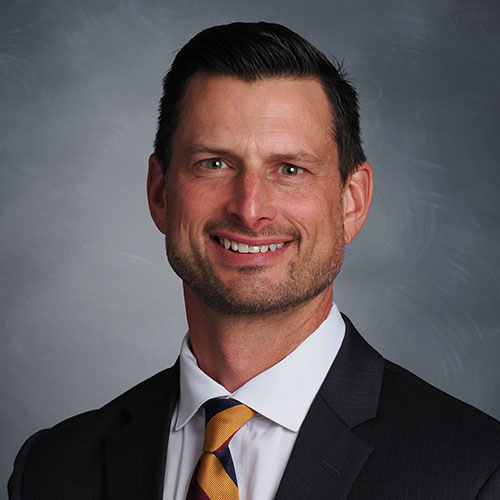 director of Medical School Rural and Metropolitan Physician Associate Programs
director of Medical School Rural and Metropolitan Physician Associate Programs
Kirby Clark, MD
University of Minnesota
Kirby Clark, MD is the director of the University of Minnesota Medical School Rural and Metropolitan Physician Associate Programs, 9 month longitudinal integrated curricula for medical students, providing the core clinical curriculum across 7 specialties. He is a faculty member at the St. John’s Hospital Family Medicine Residency Program, where he served as associate program director for 8 years, and is director of the Family Medicine Leadership and Finance course. He practices full-spectrum family medicine including obstetrics. He is a director of the University's malpractice insurance company and serves on multiple medical school committees. His medical interests include primary care delivery innovation, POCUS in ambulatory family medicine, leadership development and education design/evaluation. Dr. Clark received his medical degree from the University of Minnesota in 2001.
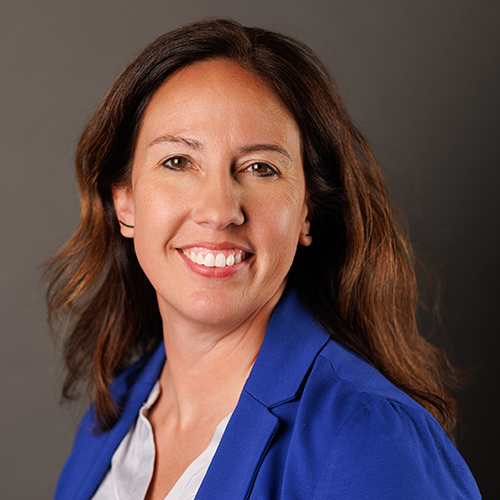 President
President
Sarah Cole, DO, FAAFP
AFMRD
Dr. Cole is the program director at Mercy Family Medicine in St. Louis, MO. She earned her medical degree from Kirksville College of Osteopathic Medicine and completed her residency at Illinois Masonic Medical Center (osteopathic internship) and Mercy Family Medicine St. Louis (family medicine residency). Dr. Cole describes herself as a geek for all things related to GME administration and regulation, including as it relates to health care advocacy. Clinically, she has particular interests in care of infants and children, hospital medicine, point of care ultrasound and osteopathic medicine.
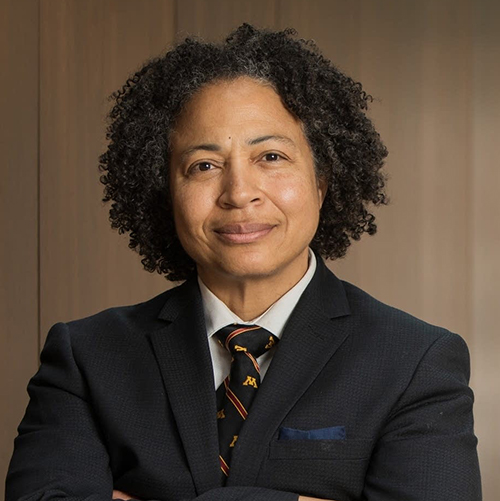 Past President
Past President
Renee Crichlow, MD, FAAFP
STFM
Dr. Crichlow practiced full-spectrum Family Medicine with Obstetrics for more than 20 years and is now the chief medical officer of Codman Square Health Center in Boston, a Vice-chair at the Boston University Medical School Department of Family Medicine, and is she is also a Lecturer at the Harvard University Chan School of Public Health. Dr. Crichlow’s Fellowships include a Fellowship in Health Policy through the Dept of Health and Human Services. She is a Commissioner for Federal and State Policy for the American Academy of Family Physician, and is also on the national Board of Directors and the founder of The Ladder, a mentorship program for kids interested in health careers.
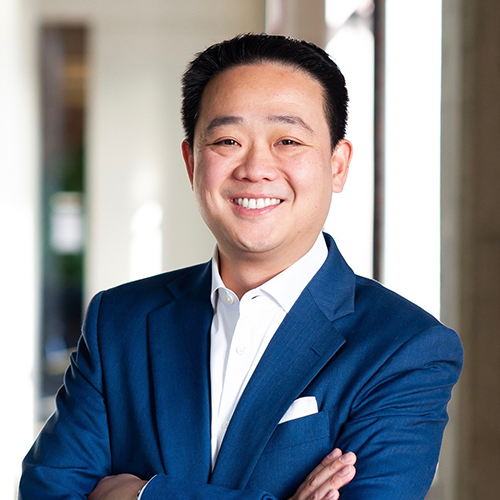 Associate Vice President for Physician Strategy and Medical Affairs
Associate Vice President for Physician Strategy and Medical Affairs
Alexander Ding, MD, MS, MBA, FACR
Humana
Dr Ding leads a team focused on physician engagement and empowerment, clinician experience; advancement of value-based care; and enterprise strategy for clinician recruitment and retention. He is a board-certified diagnostic and interventional radiologist, and remains a practicing physician, teaching and providing clinical care as a clinical associate professor at the University of Louisville. He was previously managing partner at California Advanced Imaging, and the Chief of Radiology and Medical Director of Imaging at Sutter Health on the San Francisco Peninsula. He is an elected Board member of the American Medical Association, and recently served as the chair of the AMA's Council on Science and Public Health, during the height of the COVID pandemic. He previously held a gubernatorial appointment on California's healthcare workforce commission, and has been an adviser to multiple health technology companies including Google, Eko, and Doximity, in addition to health venture funds. Alex completed his residency and fellowship at the Massachusetts General Hospital and Harvard Medical School and is a US Navy veteran.
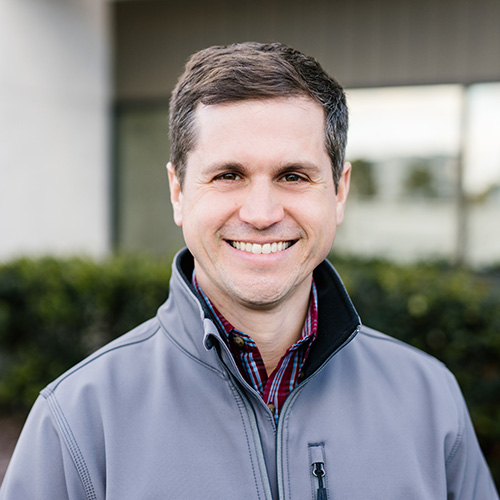 President and Co-Founder
President and Co-Founder
Bennett Graham, MBA
Main Street Health
Bennett Graham oversees growth, operations, strategic partnerships, and company culture. Under his leadership, Main Street has expanded across 26 states, partnering with over 1,200 clinic locations. Prior to Main Street, he was General Manager within Anthem’s Diversified Business Group where he built a full-risk, capitated care model focused on patients with the greatest needs in a collaboration between Aspire Health and CareMore Health. He also worked as Senior Vice President of Operations at Aspire Health, where he scaled the operations to support 10x revenue growth across 25 states. He also has experience from the Advisory Board Company where he worked in corporate strategy, new product development, and performance technologies. Bennett holds a Bachelor of Arts from Princeton University and an MBA from the University of Virginia. Bennett and his wife Amy have three kids and live in Nashville, Tennessee.
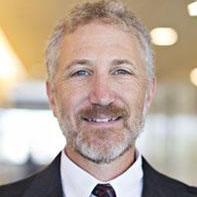 Chief Medical Executive for Primary Care with oversight of Family Medicine, General Internal Medicine, and ExpressCARE operations
Chief Medical Executive for Primary Care with oversight of Family Medicine, General Internal Medicine, and ExpressCARE operations
Grant Greenberg, MD, MA
Lehigh Valley Health Network
Dr. Greenberg is the Chief Medical Executive for Primary Care with oversight of Family Medicine, General Internal Medicine, and ExpressCARE operations, a role he has held since December 2022. Since joining Lehigh Valley Health Network in October 2016, Dr. Greenberg has also served as the Leonard Parker Pool Endowed Chair of Family Medicine and is a Professor of Medical Education and Family Medicine for the University of South Florida Morsani College of Medicine. He received his undergraduate degree in Biology and English from the University of Michigan. Before medical school, he received a master’s degree in Ecology and Evolutionary Biology at Indiana University in Bloomington, IN. He received his medical degree from the University of Michigan Medical School in Ann Arbor, MI. He completed his residency training in Family Medicine at the University of Michigan and completed a master’s degree in health services administration from the University of Michigan School of Public Health. He has also completed the Health Management Academy’s GE Scholars Fellowship. Dr. Greenberg is active with the Association of Departments of Family Medicine, serving as the Chair of the Membership Committee, participating on the Leadership Development Committee, contributes to the steering committee for the “LEADS” fellowship, and is on the Board of Directors. Dr. Greenberg is contributor to the MP3 collaborative “Making Primary Care and Population Health Primary” sponsored by the ABFM. Dr. Greenberg has been a member of the American Cancer Society National Lung Cancer Round Table since its inception, serving on the Screening and Implementation Work Group, the Early Detection Strategies Work Group, and the Fiscal Health Work Group. He has 4 children (mostly adult, but still “on the payroll”).
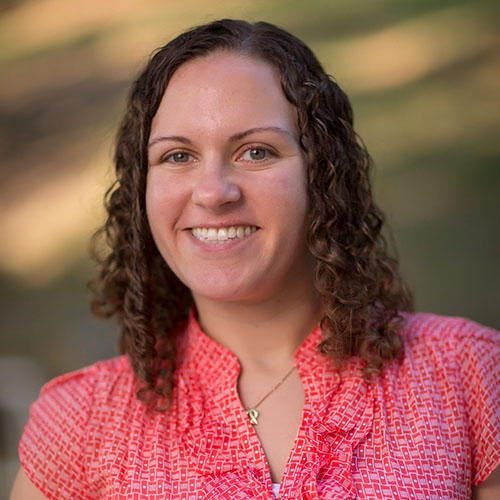 University of North Carolina
University of North Carolina
Karen Halpert
Vice Chair of Clinical Excellence and Medical Director
Dr Halpert attended undergraduate at Washington University in St Louis before completing medical school at the University of Florida. She completed a family medicine residency at UNC Dept of Family Medicine before attending Harvard's Beth Israel Deacconess multicampus geriatric fellowship. Karen joined the faculty at UNC Dept of Family Medicine in 2015. She is currently the Vice Chair of Clinical Excellence overseeing all the family of medicines service lines. She is the medical director of the UNC Family Medicine Center Durham. Karen currently practices full scope family medicine including inpatient medicine.

Alison N. Huffstetler, MD, FAAFP
Robert Graham Center for Policy Studies in Primary Care, Virginia Commonwealth University, Georgetown University
Alison N. Huffstetler MD FAAFP, a practicing family physician, Medical Director of the Robert Graham Center for Policy Studies in Primary Care, Assistant Professor in the Department of Family Medicine and Population Health at Virginia Commonwealth University and an Assistant Professor in the Department of Family Medicine at Georgetown University. She is clinically active at Fairfax Family Practice, where she also is a residency and medical student educator for the Inova Family Medicine Residency. As the Medical Director of the Robert Graham Center, she engages in primary care research that acts as the foundation for health policy at a federal and state level. She works closely with state Academy of Family Physician chapters and the federal government relation teams as a policy expert. Dr. Huffstetler’s primary research interests are in the social accountability of healthcare workforce, equitable access to care, preventive medicine, and women’s health. Dr. Huffstetler has received several accolades for her work including the Barbara Starfield Primary Care Trainee Research Award in 2019. She completed her Family Medicine residency at UVA and she went on to the Robert L. Phillips, Jr. Health Policy Fellowship at Georgetown University. Dr. Huffstetler is a board-certified Family Physician by the American Board of Family Medicine and a Fellow of the American Academy of Family Physicians. Alison enjoys playing music in her free time, reading historical non-fiction, and is a terrible cook but can bake a mean German chocolate cake.
 Vice Chair for Quality and Innovation in the Department of Family and Community Medicine
Vice Chair for Quality and Innovation in the Department of Family and Community Medicine
Tara Kiran, MD,MSc
University of Toronto
A family doctor and renowned primary care researcher, Tara Kiran investigates how changes in the health care system impact patients, particularly the most vulnerable. In her research and practice, she develops and tests solutions to make health care more inclusive and more effective. Much of Tara’s research has evaluated how primary care reforms have impacted quality of care. She also leads research to directly improve quality of care including initiatives to measure and reduce care disparities, engage patients in health service improvement, and support physicians to learn from data. In 2022, Tara launched OurCare, a national initiative to engage the public in co-creating the blueprint for a stronger, more equitable primary care system in Canada. Tara holds the Fidani Chair of Improvement and Innovation at the University of Toronto. She practices family medicine at St. Michael’s Hospital, Unity Health Toronto. She is the Vice Chair for Quality and Innovation in the Department of Family and Community Medicine at the University of Toronto, a Scientist at the MAP Centre for Urban Health Solutions at St. Michael’s Hospital, a Senior Adjunct Scientist at ICES and an Associate Professor in the Faculty of Medicine and the Institute of Health Policy, Management and Evaluation at the University of Toronto. You can learn more about her research at https://maphealth.ca/kiran/
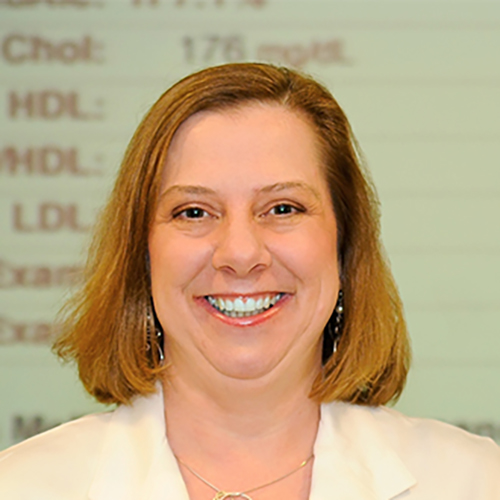 President NAPRCG
President NAPRCG
Richelle Koopman, MD, MS
NAPRCG
Richelle Koopman MD, MS is President of NAPCRG through November 2024 and is a practicing family physician and researcher. In January 2024 she became the Chair of the Department of Family and Community Medicine at University of Missouri. Her Jack M. and Winifred S. Colwill Endowed Chair is firmly planted in the roots of family medicine in the U.S. Her federally funded research focuses on electronic decision support for both clinicians and patients, particularly in the area of home blood pressure data for hypertension. She is a graduate of the University of Pennsylvania, the University of Pittsburgh School of Medicine and the Masters of Science in Clinical Research Program at the Medical University of South Carolina. She completed her residency at St. Margaret’s FMR, University of Pittsburgh Medical Center
 co-founder and CEO of Pearl Health
co-founder and CEO of Pearl Health
Michael Kopko
Pearl Health
Michael served as an early employee andVice President at Oscar Health, having built their pre-revenue Insurance Plan Sales and Network Contracting systems. He most recently managed the company’s largest P&L at +$2.5B. Prior to Oscar, Michael worked for Bridgewater Associates in the company’s Research, Client Service, and Recruiting departments. While at Bridgewater, he was the Head of Research Analytics where he reported to the CEO and Head of Research. In 2009 he successfully sold DormAid, a college service company, which he launched and ran while he was a student at Harvard. He is the recipient of Columbia’s Feldberg Fellowship, where he received his MBA. He received his AB from Harvard University.
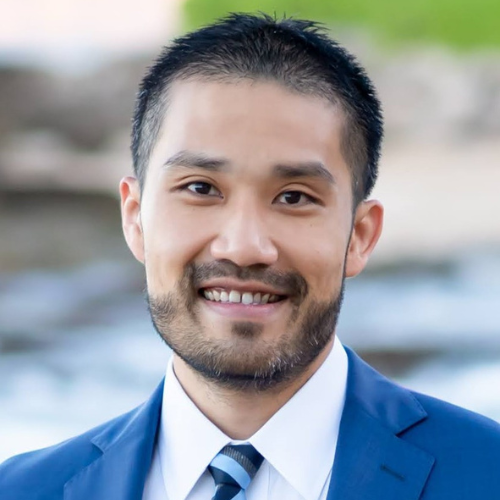 President Elect
President Elect
Steven Lin, MD
STFM
Steven Lin, MD is the Chief of General Primary Care and the Head of Technology Innovation for the Division of Primary Care and Population Health at Stanford University School of Medicine. His focus is on the intersection of health services innovation, digital health and emerging technologies—specifically artificial intelligence and machine learning in healthcare. Steven is the Founding Director of the Stanford Healthcare AI Applied Research Team, a primary care-focused AI/ML implementation center partnered with 50 organizations across industry, academia, non-profit and government to bring leading-edge AI/ML technologies from “code to beside” in support of the Quintuple Aim. He was a James C. Puffer/American Board of Family Medicine Fellow with the National Academy of Medicine and is the author of over 450 scholarly works and conference presentations.
 President/CEO
President/CEO
Warren Newton, MD, MPH
American Board of Family Medicine
Prior to coming to ABFM, Dr. Newton practiced as a personal physician for 32 years in an FQHC, Health Department and an academic practice; he also started the first hospitalist service at UNC in 1997 and has led large scale practice and educational transformation at the local, regional and statewide levels. ABFM is redesigning every aspect of its certification portfolio, including the Family Medicine Certification Longitudinal Assessment (FMCLA), a new National Journal Club, Knowledge Self Assessments, Performance Improvement activities and a major revision of its Professionalism Guidelines. The ABFM launched the Center for Professionalism and Value in Health in July 2019 in Washington, DC, runs the PRIME registry, and conducts research in the ecology of family medicine, Measures that Matter in Primary Care and other policy areas critical to the future of family medicine and primary care. Family Medicine Residency Redesign is also a major focus now, with implementation of CBME across 772+ residencies as of July 1, 2023 as is supporting a specialty wide initiative to build research capacity. A recovering Residency Director, Chair, Chief Academic Officer, and NC AHEC Director, he clearly gets bored very easily and relishes working with colleagues and friends in family medicine.
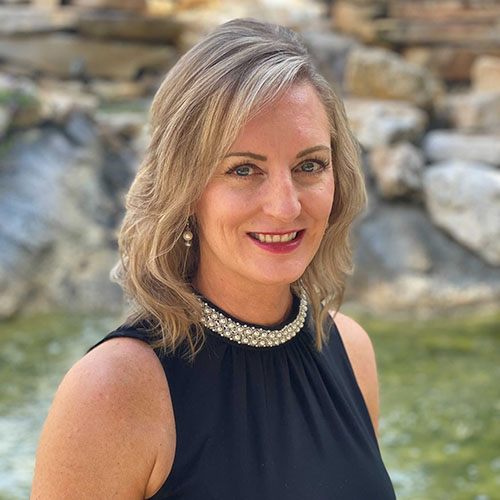 Elation Health,
Elation Health,
Sara Pastoor, MD, MHA, FAAFP
Head of Primary Care Advancement at Elation Health
Dr. Sara Pastoor is a clinically active family physician and currently serves as the Head of Primary Care Advancement at Elation Health, where she advocates for primary care and its powerful role in healthcare. She also is the personal PCP to patients at People-Centered Health, a direct primary care practice in San Antonio, Texas. Dr. Pastoor is a seasoned physician executive with 26 years of experience leading primary care innovation, EHR optimization, and health technology development. She is a Fellow of the American Academy of Family Physicians and spent the first 15 years of her medical career in the Army Medical Department, helping to lead the Military Health System transformation to a patient-centered system for health. Dr. Pastoor has also led patient-centered transformation, primary care expansion, and EHR workflow optimization in the academic and employer-sponsored primary care settings. On the weekends, she volunteers in a free primary care clinic, teaching students and serving an indigent population in her hometown.
 Executive Committee
Executive Committee
Lars Peterson, MD, PhD
ABFM
Lars Peterson, MD, PhD is a family physician and health services researcher. He is a Senior Physician Scientist at the American Board of Family Medicine (ABFM) and a Professor in the Department of Family and Community Medicine at the University of Kentucky. He is the steward and architect of ABFM's data collection from Diplomates as part of the certification process. Using these data he has led multiple research efforts to understand what family physicians do in practice and how the quality of care they provide can be improved. In particular, elucidating the ways in which Continuing Certification activities may be associated with quality of care. His other research interests include access to health care, residency education outcomes, rural health, primary care.
 Executive Committee
Executive Committee
Bob Phillips, MD, MSPH
ABFM
Dr. Phillips directs the Center for Professionalism and Value in Health Care. He also oversees the American Board of Family Medicine's (ABFM) research and related collaborations, as well as the policy relationships related to family medicine and primary care. He currently practices one day each week in a community-based residency program in Fairfax, Virginia, and is Professor of Family Medicine at Georgetown University and Virginia Commonwealth University. Prior to being named executive director of the center in 2018, he served as the ABFM Vice President for Research and Policy. Dr. Phillips is a past director of the Robert Graham Center, a health policy research center in Washington, DC.
He has deep experience in designing and implementing health services research pertinent to policy development and a history of prodigious productivity. His passion for underserved populations is born of growing up in a rural community that is both a Health Professions Shortage Area and Medically Underserved Area. It was bolstered by working in a Federally Qualified Health Center imbedded in a Federal Housing Project. His research and policy experience led him to his selection by the Secretary of Health and Human Services to serve on a Federal Negotiated Rule Making Committee for the redesignation of shortage and underservice areas.
He was elected to the National Academy of Medicine in 2010 and has served the National Academies in several capacities since. In 2012, the health policy research fellowship co-sponsored by the Robert Graham Center and Georgetown University was renamed the Robert L. Phillips, Jr. Health Policy Fellowship. He was named to the University of Florida College of Medicine Hall of Fame in 2016. He served as a Fulbright Specialist to the Netherlands in 2012 and New Zealand in 2016.
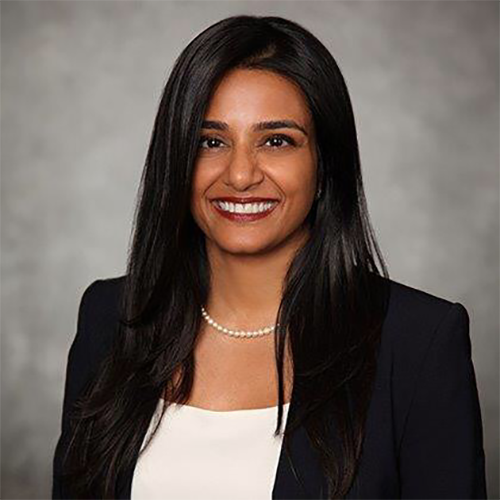 Co-Founder
Co-Founder
Soujanya (Chinni) Pulluru MD
MyPreciousGenes
Dr Pulluru is a board-certified family physician and a seasoned clinical executive that has dedicated the last 20+ years to transform and innovate the care continuum with access and Value Driven Healthcare. Dr. Pulluru practiced in a busy large multispecialty physician-owned practice for 15 years while she rose through ranks of leadership as FM Chair to ultimately become Executive Medical Director of the 750 physician group and an MSO that oversaw 5000 physicians. She brings her background in clinical operations, provider alignment, analytics and passion for digital care transformation to provide access by now co-founding MyPreciousGenes. Dr Pulluru, former Chief Clinical Executive and interim-CMO of Walmart Health and Wellness, is an innovator who has built a national healthcare enterprise from the ground up in a Fortune-10 company and has driven explosive growth, and value transformation in a $1-B multi-specialty group while maintaining industry leading quality scores. She spearheaded YOY positive financial and clinical outcomes while growing the VBC platform 10X. At DMG, (now Duly) Chinni served as the physician representative on the management team through two private equity acquisitions. At Walmart, she has helped to acquire and expand a national telehealth company and architect a partnership with UHG/Optum and Walmart to provide senior focused Value-Driven Care. Her leadership has shown proven clinical and financial outcomes while scaling and maintaining team culture. She serves as a board member of PhysicanX, Stellar Health, USofCare Founders Consul, a bipartisan organization dedicated to policy for healthcare access, and incoming Co-Chair to PTAC (an HHS subcommittee advising CMS/CMMI and HHS on Advanced Payment Methodology). She is a thought leader and Keynote speaker for multiple organizations including CHEF, RISE, University of Chicago, ACHE, AAFP. In the past, She has also served as a board member and officer of the IAFP, and on her regional Board of Health.
 Chief Strategy Officer
Chief Strategy Officer
Purva Rawal, PhD
CMS Innovation Center at the Centers for Medicare and Medicaid Services.
Purva Rawal, PhD, is the Chief Strategy Officer at the CMS Innovation Center at the Centers for Medicare and Medicaid Services. As part of the Senior Leadership team, she provides guidance and leadership on the execution of the Innovation Center’s strategy.
Prior to her current role, she spent a decade in policy and business strategy consulting and policy research focused leading projects on value-based payment and health system transformation. She was also an adjunct assistant professor at Georgetown University. In 2016, she published a book, The Affordable Care Act: Examining the Facts and has published book chapter, blogs, and papers on value-based care. Previously, Dr. Rawal served as professional staff on the Senate Budget Committee during the passage of the Affordable Care Act and as the health and social policy advisor to Sen. Joseph Lieberman (I-CT). She began her health policy career as a Christine Mirzayan Science and Technology Fellow at the National Academy of Sciences and as a Congressional Fellow for the Society for Research on Child Development and the American Association for the Advancement of Science. Dr. Rawal received her B.A. and Ph.D. from Northwestern University.
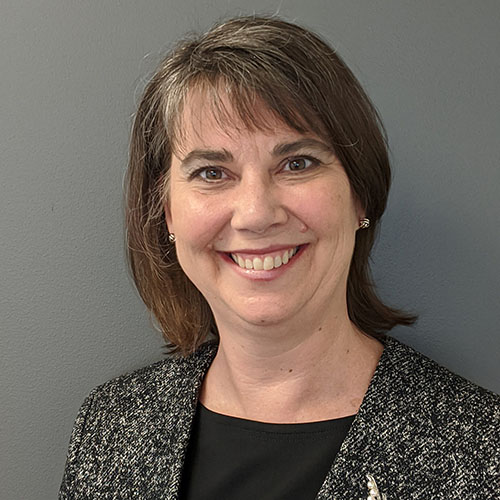 Professor of Family Medicine and Health Policy
Professor of Family Medicine and Health Policy
Diane Rittenhouse, MD, MPH
University of California, San Francisco
Diane Rittenhouse, MD, MPH, a senior fellow at Mathematica and Professor of Family Medicine and Health Policy at UCSF, has two decades of experience researching health care organization, delivery, finance, and workforce – and translating that research into policy. She received a Generalist Physician Faculty Scholar award from the Robert Wood Johnson Foundation and has been recognized in the United States and Europe as a leading primary care researcher. Currently she is leading several projects focused on optimizing the primary care team workforce; strengthening the connection between primary care and health equity; diversifying California’s physician workforce; understanding and supporting independently owned physician practices; and highlighting exemplary primary care practices participating in federal primary care payment demonstrations. She serves as an expert advisor for the development of the Health of U.S. Primary Care Scorecard recommended by the National Academies of Sciences, Education and Medicine. Dr. Rittenhouse is a family physician who practiced for 10 years in a community-based faculty practice at the University of California, San Francisco.
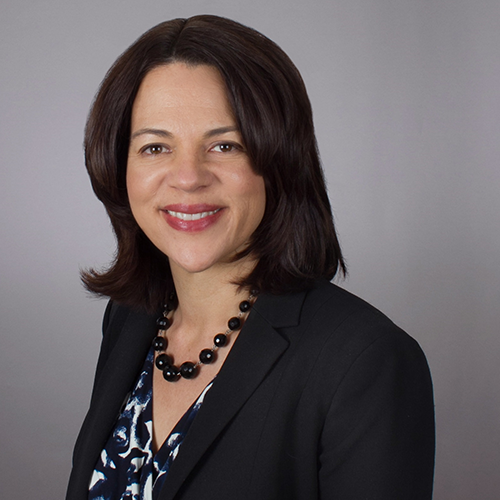 University of Southern California in Los Angeles, CA
University of Southern California in Los Angeles, CA
Jehni Robinson, MD, FAAFP
Associate Dean for Primary Care and Professor and Chair of the Department of Family Medicine
Dr. Robinson is immediate past president of USC Care Medical Group, a multispecialty group representing over 800 faculty clinicians practicing at Keck Medicine of USC. Dr. Robinson led development of a new Family Medicine residency sponsored by a new sponsoring institution at Keck Medicine of USC, welcoming its first class in 2021. In 2024, she became president for the Association of Departments of Family Medicine. Dr. Robinson has expertise in leadership development, care delivery redesign, and care for the underserved. She co-founded the USC Street Medicine Program in 2018, which brings care to unhoused people in Los Angeles and has grown to 5 clinical teams and a robust workforce development program training street medicine teams across California as well as USC clinician trainees. Additionally, she has successfully advocated to improve reimbursement for this care model, resulting in receipt of the 2024 Society of Teachers of Family Medicine Advocate Award. Prior to coming to USC, she served as Chief Medical Officer for The Saban Free Clinic, also known as The Los Angeles Free Clinic, and taught in the Harbor UCLA Transforming Primary Care Faculty Development Fellowship. She received her undergraduate degree from Stanford and her medical degree from Morehouse School of Medicine. She completed her residency at Harbor-UCLA in Family Medicine followed by a chief year and faculty development fellowship. She has also completed the California Healthcare Foundation Health Care Leadership Fellowship program in 2013 and the Hedwig Van Ameringen Executive Leadership in Academic Medicine program in 2022. Dr. Robinson is a fellow of The American Association of Family Physicians.
 Consultant and Chair
Consultant and Chair
David Rushlow, MD
Mayo Clinic Midwest Department of Family Medicine
Dr Rushlow is Consultant and Chair, Mayo Clinic Midwest Department of Family Medicine and Assistant Professor, Mayo Clinic College of Medicine. He received his undergraduate degree from the University of Wisconsin La Crosse WI, 1986, Medical School at the Medical College of Wisconsin, Milwaukee, 1990, and residency training at the La Crosse/Mayo Family Medicine program, 1993.
After residency, he practiced family medicine in Shawano WI until 1997. He then returned to La Crosse
to serve as a faculty physician for the La Crosse/Mayo Family Medicine Residency. In 2012, he became the Chief Medical Officer for Mayo Clinic Health System, Southwest Wisconsin Region until his transition to the Family Medicine Department Chair role in 2019. In 2015 he received a Master of Business Operational Excellence from The Ohio State University. Clinical interests include team-based performance improvement using Lean/Six Sigma principles. Research interests include artificial intelligence and pragmatic clinical trials to advance the Quadruple Aim in healthcare.
 Managing Director
Managing Director
Ipsita Smolinski
Capitol Street
Ipsita Smolinski is a veteran advisor on healthcare regulatory and legislative issues with over 20 years of experience in healthcare policy and economic analysis. As the managing director of Capitol Street, she advises clients on key trends and major actions coming out of Washington, D.C., as well as at the state, court and stakeholder levels. These include healthcare legislation moving on Capitol Hill, actions from CMS, FDA, NIH, FTC, and other agencies, as well as emerging and commercial market trends e.g., ICER, PBM reform, high deductible health plans, cell and gene therapy novel payment mechanisms, evolution of primary care clinics, and Amazon’s foray into health care delivery. Her primary focus is forecasting the impacts of health policy through data-driven economic analysis. Smolinski holds a faculty appointment at the Johns Hopkins University Carey Business School where she teaches coursework in Healthcare Economics and Healthcare Finance. She also holds a faculty appointment at Georgetown University School of Health where she teaches in the Department of Health Management and Policy. She serves as a Senior Strategic Advisor to McAllister & Quinn, a healthcare grants firm that supports large US hospital systems.
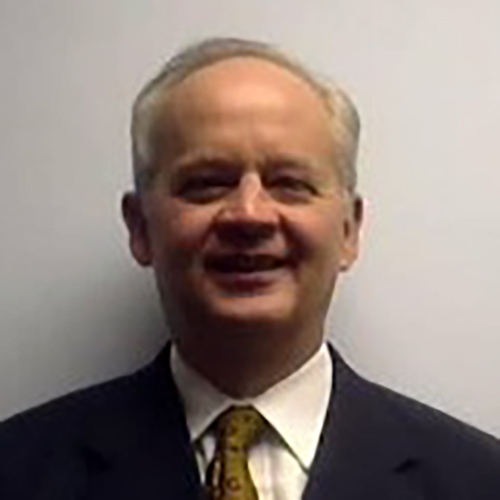 retired CEO
retired CEO
Brian Toomey, MSW
Piedmont Health Services
Brian Toomey, MSW, retired after 20 years as CEO for Piedmont Health Services (an FQHC / PACE 501c3 corporation) in January, 2024. During his tenure he served as Board Chair for the NC Community Health Association (NCCHCA) for two terms and was one of the founding members of the NCPACE Association. PHS annually served approximately 50,000 patients and WIC recipients, with a staff of just under 600 people and an annual operating budget of approximately $90M. Prior to his tenure at PHS, Mr. Toomey was the Executive Director at Geiger Gibson Community Health Center – the first Community Health Center in the country - in Boston, MA. Prior experience includes working as a Social Worker at a large urban hospital (Brigham and Women’s Hospital) and as a Social Worker / Administrator at a small rural hospital (Martha’s Vineyard Hospital). He has been an Adjunct Faculty for multiple Institutions including UNC Family Medicine, Boston College, and Smith College School of Social Work. He is a graduate of Wake Forest University (BA 1975) and Boston College School of Social Work (MSW 1980)His awards include Distinguished Alumnus of the Year from Boston College School of Social Work and a Life Time Achievement Award from NACHC.
 Boston University
Boston University
Charles Telfer Williams, MD
Clinical Associate Professor of Family Medicine
After completing his Bachelors in Bioethics and MD from the University of Wisconsin-Madison, and residency at Brown University, Dr Williams came to BU in 1997 to help found the Department of Family Medicine. He served as Medical Director of two Family Medicine practices and Director of Ambulatory services. After becoming a Vice Chair (2010), he served for a year as interim chair in 2011-12. In 2012 he became Medical Director of the Boston HealthNet, a Health Center Controlled Network of 12 CHCs, BU and BMC. Over the past 27 years he has focused on systems improvement applying he expertise to 1) clinical care— leading 4 EHR implementations, implementing open access scheduling, standardizing network referrals, and re-engineering chronic disease management; 2) leadership development—mentoring leaders across the network; 3) education - developing clinical simulations and games, holding quality improvement Kaizens and coaching EHR efficiency; and 4) research—creating structures to facilitate research in the CHCs.
